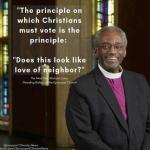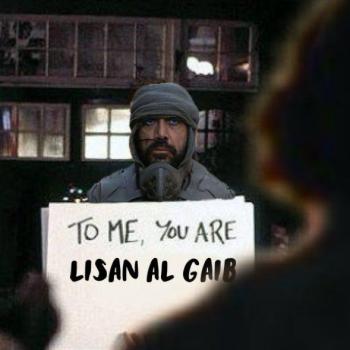As of June 1st I am chair of the Department of Philosophy and Religious Studies at Butler University. Like all Humanities subjects, the study of religion has witnessed a significant decline as students gravitate to the majors in STEM fields that they imagine will guarantee them jobs and high salaries. All this is happening simultaneous with the major sectors of industry emphasizing the need for Humanities skills in the current context. As the World Economic Forum published a few years ago:
The top ten skills of tomorrow identified by the World Economic Forum last year were dominated by skills perhaps best honed in the arts and humanities fields: critical thinking and analysis; creativity, originality and initiative; leadership and social influence; reasoning and problem-solving.
Studying religion is just one of those Humanities areas, but it is a field in which the key elements in many Humanities disciplines come together. History, worldview, morality, authority, and many more.
Religious Studies and Theology: What’s the Difference?
Religious Studies, to be clear, is the academic study of religion as a human phenomenon. It is sometimes distinguished from Theology which typically denotes work on religion from an insider perspective, that is, trying to construct and clarify doctrines for oneself and one’s community. However, the terminological distinction isn’t consistently made, and in some places (e.g. the UK) theology tends to cover all of the above.
Things also get blurry because you have people like me and some of my colleagues who work and teach in Religious Studies and yet have our own religious affiliations and communities that we are involved in.
Unbiased Study of Religion?
This doesn’t affect things as much as some might imagine. After all, it is not as though the average atheist is impartial about religion. Many of them have very strong negative feelings. Just like allegiance, hostility is a bias.
Reflecting on this can be helpful in today’s heated and divided religious and political environment. People find they can “see through” the propaganda that comes from a viewpoint opposed to their own. Those same people may fall time and time again for misinformation that supports their viewpoint.
The point is not to find “unbiased” sources when researching a subject. Human beings have biases. What we need to look for is fairness, an effort to be open to information and arguments that challenge our assumptions and beliefs. Then we should add to that an effort to consider perspectives that are differently biased.
Religious Studies for the Religious?
If you are a Christian and never listen to the views of Christians from different denominations, never mind atheist and Jewish perspectives, then you aren’t really challenging your perspective. The same applies if you are an atheist or anything else. Maybe you think that’s the point of religion, to cling dogmatically to one’s views. Maybe if you’re an atheist you are sure that now you’re free from religion and so free from biases that distort your perception.
That’s now how being human works. We all have biases, and we only become aware of them through interaction with difference.
If you would say that questions of ultimate reality, meaning, and value are important to you (and they should be), then you shouldn’t be clinging dogmatically to your views.
Why? Because the Bible warns about false teachers. So does atheism. So do most traditions, religious and political.
If it is important not to be deceived, the only way to do that is by looking closely at evidence and listening carefully to other viewpoints. Whether the result is that you change your mind or you find your views strengthened, either way it is a positive thing.
Religious Studies for the Non-Religious?
What if you aren’t someone with strong feelings about religion one way or the other? You still have just as many really good reasons to want to study religion. We don’t just need to understand our own values and worldview, and to revise it in light of new discoveries. We need to understand how our fellow human beings make meaning.
The religious symbols and language that were on display among those who stormed the Capitol on January 6th illustrate just how crucial it is to understand the phenomenon of religion using the tools of academic study: culture, politics, society.
The study of religion today often includes elements of sociology and data science/analysis. Often the impressions we get from news reporting, or from our own limited circles of friends and social media contacts, about what “most people think” and why they think it, are far off target.
Conclusion
Sure, calculus and organic chemistry are hard, but matters of ethics and interpersonal relationships, distinguishing fact from fiction and spotting misinformation, are not “soft” skills. These are among the hardest skills. I often say that if you can think critically about religion, you can do so about any topic.
Whether your aim is to do business, be a lawyer, become a doctor, pursue politics, or just be an engaged citizen, adding religious studies as at least a minor will help you do a better job of it.
I teach at Butler University in Indianapolis, and while it isn’t the only place you can study the phenomenon of religion, I do highly recommend it. I’m obviously biased, but being closely acquainted with an institution doesn’t necessarily mean blind allegiance. Remember what I wrote above? Allegiance to an organization can sometimes blind us, but sometimes it is an indication that we have “done our homework” and find the mission of that organization worth supporting wholeheartedly. I believe I’m in the latter category. I myself am a Christian, but among my colleagues one will find other perspectives as well. What we share in common is a desire to pursue the truth and understanding. We support but also challenge one another in ways that are mutually beneficial.
That’s the kind of environment that fosters excellent study of religion – or any other subject. We have worked hard to create that culture in our program, because it benefits us as researchers, and in turn benefits our students. We work hard to foster the same kind of outlook and community among our students.
Are you about to make a choice where to study? Looking to continue your education? Take a look at what Butler University’s religious studies graduates have to say and then consider joining us!
All Things Bright and Biblical: Biblical Studies as Religious Studies and as Theology













